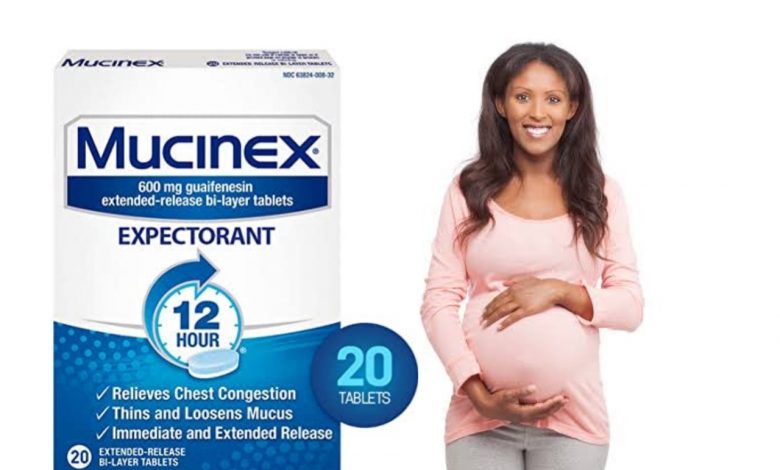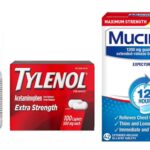Is Mucinex Safe During Pregnancy?

When you become pregnant, your immune system is likely to change. As a result of these changes, you may contract a cold or cough at some point during your pregnancy. In addition, your illness may last longer. The good news is that even though you probably feel fatigued, the symptoms of a cold or flu are not typically dangerous to your baby. However, it is important to take the necessary measures to avoid contracting a cold or cough during pregnancy and to treat it once you get one.
Although some medicines are considered safe during pregnancy, the effects of other medicines on your unborn baby are unknown. Certain medicines can be most harmful to a developing baby when taken during the first three months of pregnancy, often before a woman even knows she is pregnant.
It can be hard to know if a medicine is safe for your baby. Most medicines are not studied in pregnant women. That’s because researchers worry about how the medicines might affect the baby. But some medicines have been taken for so long by so many women that doctors have a good idea of how safe they are.
What is Mucinex?
Mucinex is a brand of guaifenesin, an expectorant used for the temporary relief of coughs caused by the common cold, bronchitis, and other breathing illnesses. This product is usually not used for ongoing coughs from smoking or long-term breathing problems (such as chronic bronchitis, or emphysema) unless directed by your doctor. Guaifenesin is an expectorant. It works by thinning and loosening mucus in the airways, clearing congestion, and making breathing easier. Other common brands include Diabetic Tussin, Mucinex Children’s Chest Congestion, and Mucinex Fast-Max SE Chest Congestion.
How should this medicine be used?
Mucinex comes in many different formulations, including extended-release (ER) tablets, liquids, and dissolving granules to take by mouth. The tablets, capsules, dissolving granules, and syrup are usually taken with or without food every 4 hours as needed. The extended-release tablet is usually taken with or without food every 12 hours. Follow the directions on the package or on your prescription label carefully, and ask your doctor or pharmacist to explain any part you do not understand. Take guaifenesin exactly as directed. Do not take more or less of it or take it more often than prescribed by your doctor.
Guaifenesin the major active ingredient in Mucinex comes alone and in combination with antihistamines, cough suppressants, and decongestants. Mucinex D (guaifenesin and pseudoephedrine) is an expectorant/nasal decongestant combination, and Mucinex DM (guaifenesin and dextromethorphan) is an expectorant/cough suppressant combination. Mucinex D and Mucinex DM both contain the expectorant guaifenesin (which is contained as a single ingredient in Mucinex).
Ask your doctor or pharmacist for advice on which product is best for your symptoms. Check nonprescription cough and cold product labels carefully before using two or more products at the same time. These products may contain the same active ingredient(s) and taking them together could cause you to receive an overdose. This is especially important if you will be giving cough and cold medications to a child.
Swallow the extended-release tablets whole with a full glass of water. Do not break, crush, or chew them.
If you are taking the dissolving granules, empty the entire contents of the packet onto your tongue and swallow.
If your symptoms do not improve within 7 days or if you also have a high fever, a rash, or a headache that does not go away, call your doctor.
Is Mucinex safe during pregnancy?
Yes, Mucinex appears to be safe during pregnancy, with the exception of the first trimester. A study involving 197 pregnant women reported that there was an association between guaifenesin exposure in the first trimester and an increased incidence of inguinal hernias.
Mucinex D containing guaifenesin and pseudoephedrine is also safe for many women to use during pregnancy. However, women who have high blood pressure should not take Mucinex D without first talking to a doctor. The drug can raise blood pressure and can cause jitters and racing heartbeats. Similarly, Mucinex DM a combination of guaifenesin and dextromethorphan is also considered relatively safe. Recent research has indicated that pregnant women do not have to worry about taking Mucinex DM after the first trimester.
Do not take Mucinex or other combination products during pregnancy without first discussing it with your doctor or health care provider. The maximum dose of Mucinex for pregnant women is 120 mg in 24 hours.
In addition, Mucinex and nonprescription cough and cold combination products, including products that contain guaifenesin, can cause serious side effects or death in young children. Do not give these products to children younger than 4 years of age. If you give these products to children 4 to 11 years of age, use caution and follow the package directions carefully.
If you are giving Mucinex or a combination product that contains guaifenesin to a child, read the package label carefully to be sure that it is the right product for a child of that age. Do not give guaifenesin products that are made for adults to children.
Before you give a guaifenesin product to a child, check the package label to find out how much medication the child should receive. Give the dose that matches the child’s age on the chart. Ask the child’s doctor if you don’t know how much medication to give the child.
If you are taking the liquid, do not use a household spoon to measure your dose. Use the measuring spoon or cup that came with the medication or use a spoon made especially for measuring medication.
How can I avoid coughs and colds during pregnancy?
You can’t always avoid cough and cold. You’re likely to pick one up at some time during your pregnancy because it’s normal to catch two to three colds a year.
You’re most likely to pick up the virus when you touch someone who has a cold, or an object they’ve recently handled, like a phone or a door handle, then touch your nose or eyes. So following good hygiene rules really can help prevent colds from spreading further.
To give yourself the best chance, try to follow these hygiene tips:
• Wash your hands often with warm soapy water during pregnancy.
• Avoid touching your nose or eyes, as viruses often get into your body this way.
• Ask those around you to practice “catch it, bin it, kill it”. Catch coughs and sneezes in a tissue, throw it away, and then wash your hands.
• Clean surfaces in your home and workspace regularly.
• Avoid sharing cutlery, cups, or plates with someone who has a cough or cold.
• Avoid sharing towels – use your own, or use paper towels to dry your hands.
If possible, stay away from anyone who has an obvious cough or cold. It’s hard to avoid cough or cold completely though, as people are contagious a few days before their symptoms begin.
Taking a daily vitamin C supplement won’t prevent you from getting a cough or cold but it may make it less severe and last a shorter time.





